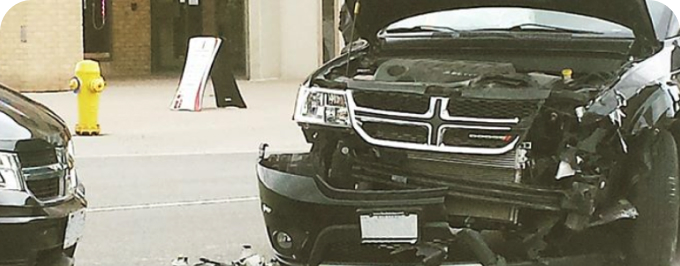Fraud Prevention

Consumer alerts
Stay informed about current threats, fraud attempts, and other risks to your personal or financial information.
If you suspect insurance fraud, we would like to hear from you.
From fake claims and altered documentation, to identity and underwriting misrepresentation, Co-operators has dedicated resources to promptly investigate suspected fraud.
You don’t need to be 100% certain to report fraud. Even if your report is based on reasonable suspicion, we will investigate and get to the bottom of it.
How to report fraud?
- Call our Fraud Tip Hotline 1-833-320-3210
- Email details to report_fraud@cooperators.ca
- Fill out our Fraud Reporting form, if you choose to stay anonymous. Review this privacy notice before you fill out the form.
If you prefer to not report directly to Co-operators, anonymous tips can be reported as follows:
- For Home, Auto and Business insurance related matters: Équité Association
- For Health Benefits related matters: Canadian Life and Health Insurance Association
As an Equite member, we are committed to detect and prevent fraud and crime in the Canadian insurance industry.
When reporting suspected fraud, please be sure to include all pertinent information, including the name(s) of the parties you suspect of fraud, dates, and a description of the activity or abuse. No return contact will be made unless requested. If you leave your name or other identity information, that information you provide could be disclosed under certain circumstances.
Co-operators will make reasonable effort to keep all reports, including the identity of the reporter, confidential. Reports will only be disclosed to specific individuals within Co-operators involved in any investigation, and only to the extent necessary to investigate the allegations. Although infrequent, we may be required to disclose your report in compliance with applicable legal, governmental, or regulatory proceedings. For your own privacy protection, please do not include sensitive personal or account information with this submission.
If you prefer to not report directly to Co-operators, report anonymous tips as follows:
For Home, Auto, Farm or Business insurance related matters: Équité Association
For Life and Health Benefits related matters: Canadian Life and Health Insurance Association
You don’t need to be 100% certain to report. You just need to have a reasonable suspicion that fraud has occurred or is occurring. For instance, can you point to specific facts or circumstances that suggest fraud? If you told someone else about those facts and circumstances, would they be likely to also suspect fraud? If so, you are acting reasonably. If you report, we will investigate and take it from there.
On the other hand, note that it is improper for an individual to make a report they know to be false. Malicious reporting could have legal consequences for the person making the false report.
If the allegations are substantiated following an investigation, the investigating team may issue recommendations regarding any appropriate criminal or regulatory actions that should be taken; employees involved in any fraud may also face disciplinary actions.
Your report will only be used for the purpose of reviewing and necessary follow-up regarding the information you have provided, and only with regards to the claim/alleged fraud to which it pertains. Information provided will not be used for other purposes unrelated to addressing the fraud risk identified.
Co-operators investigates every report – but that doesn’t mean every report results in a finding of fraud. Where we believe allegations of fraud have been substantiated, the investigating team may issue recommendations regarding any appropriate criminal or regulatory actions that should be taken; employees involved in any fraud may also face disciplinary actions. A record of the investigation is created, along with the comment that the allegations were determined to be substantiated. Proven fraud is likely to have an influence over the outcome of the associated transaction. Where we conclude the allegations have not been substantiated, a record of the investigation is created, along with the comment that the allegations were determined to be unsubstantiated.
Staged losses
Sometimes a loss is reported that is completely fictitious, and a claim is advanced for financial gain. Learn more about staged losses in: “What is auto insurance fraud; how does it impact me?”
Opportunistic
When a legitimate loss occurs, it may be tempting to make a claim for items that were not part of the loss (perhaps to cover the deductible) or get a pre-existing damage fixed. Claiming for items or damages that did not occur as part of the loss is considered fraud even if an actual loss occurred.
False claims related to injuries
From exaggerating injuries, falsifying employment information or medical bills, or even falsely claiming to have been present in the vehicle at the time of an accident, fraud related to injury scenarios is costly for our emergency personnel, the healthcare system, and our policyholders.
Thefts and vehicles with fake or altered VINs
Criminals will re-VIN vehicles by removing the original VIN (Vehicle Identification Number) and replacing it with a fictitious one, or one that is cloned from another vehicle, to hide the association with the stolen vehicle. Owners of vehicles without valid VINs could have their vehicle seized and/or insurance claim denied.
Ghost brokers
Ghost brokers are people who misrepresent themselves as insurance brokers despite not being licensed to sell insurance in the province or territory in which they operate. Learn more about ghost brokers and how you can protect yourself.
Insurance application fraud
Being deceitful about the address a vehicle is insured at to get a cheaper premium is misrepresentation and may result in a claim being denied and the policy cancelled. Other forms of misrepresentation include being dishonest when applying for a group rate, or not disclosing accidents or other drivers in the household.
Phishing
Phishing is the fraudulent practice of sending emails or other messages purporting to be from reputable companies or known contacts in order to induce individuals to reveal personal information, such as passwords and credit card numbers. Phishing scams are getting more sophisticated. It is important to protect your personal information by only opening emails/texts and clicking on links from senders that you recognize. Do not disclose personal and account information if you suspect the legitimacy of an email or a text. Some signs to look out for can include spelling mistakes and lack of personalization.
Fraudulent cheques and e-Transfer interception fraud
From time to time, we come across fraudulent Co-operators cheques that are being used in various scams. For example, individuals have reported receiving cheques with reference to mystery shopping; these cheques are fraudulent. If you unexpectedly receive a cheque from Co-operators or are unsure about the origins of a Co-operators cheque, please contact us at SIU@cooperators.ca to verify its authenticity.
With the growing popularity of e-Transfers, interception fraud is following suit. Hackers may be able to access your email (using account information obtained through phishing or fraudulent means) and deposit e-Transfers into their own accounts. To protect yourself, register for auto deposit and ensure that you create difficult and unique passwords for your accounts.
Caller ID spoofing
On occasion, we have been alerted to some possibly fraudulent companies using Co-operators phone numbers deceitfully. This practice is known as “Caller ID spoofing”, which entails placing calls from one phone line but having the number and/or name that appears on the receiver’s phone altered to make it look legitimate.
If you have reason to believe that someone is attempting to represent themselves falsely as a Co-operators employee and you receive one of these “Caller ID spoofs” we encourage you to report it to Co-operators (see above for reporting options), the Canadian Anti-Fraud Centre or by calling 1-888-495-8501. Please provide as many details as possible, such as the date and time of the call, the displayed phone number, the home number called and the name of your service provider.
As we investigate these incidents and look into possible legal and technical remedies, please keep in mind that the number that appears on your caller identification is not necessarily the one actually calling you. Also, please note that Co-operators will never ask for credit card or other sensitive information over the phone.
If you have any questions, please contact us at SIU@cooperators.ca.



